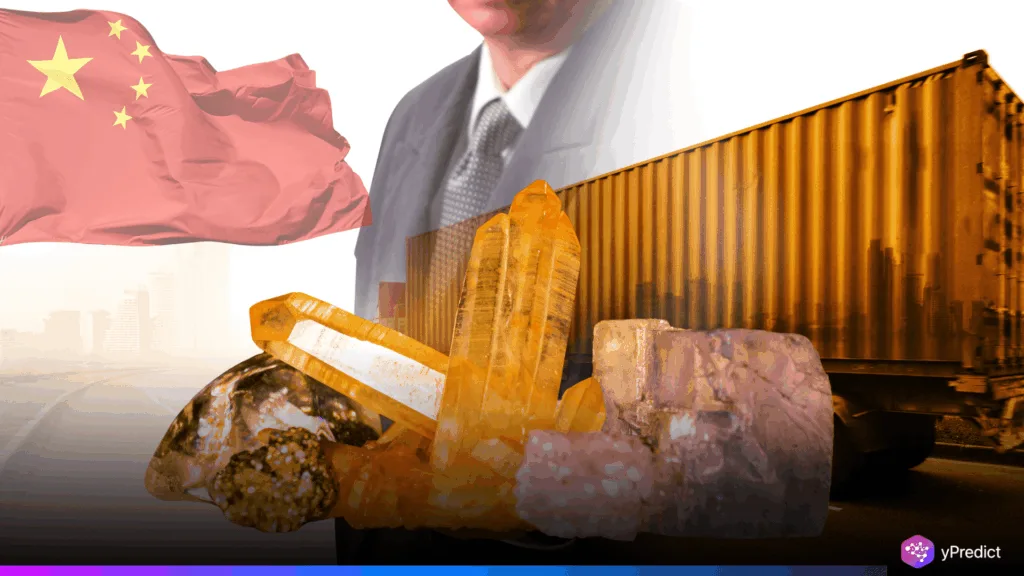
China’s influence over critical mineral exports, which are crucial for the West’s capacity to develop advanced military technology, is growing. These minerals are needed to make weapons, radar systems, and fighter planes. Beijing’s stricter export regulations are also causing concern for the defense sectors in the US and Europe.
As a consequence, the relocation may stretch global supply chains and produce delays in the military manufacturing schedule. Furthermore, national security concerns are driving an increase in global efforts to source alternatives.
China’s Move Sends Shockwaves Through Global Supply Chains
China has raised the licensing fees for the export of critical rare minerals such as gallium and germanium. The components are required to produce semiconductors, missile guidance, and spy systems. Therefore, defense companies in the US and Europe are confronted with additional challenges that affect the cost and speed of production.
The Chinese government cites environmental and national security justifications for these export restrictions. On the other hand, experts see it as a calculated reaction to growing geopolitical hostilities with the West. Additionally, the effect has caused the price of prohibited and rare minerals to rise sharply on commodity exchanges.
Leading manufacturers, especially those in the aerospace and defense industries, are racing to accumulate stockpiles. Some are negotiating directly with Australian and African suppliers. Meanwhile, non-Chinese rare mineral producers’ shares have risen, indicating increased investor interest in alternative supply routes.
Can Nations Break China’s Processing Power Hold?
According to industry experts, replacing China’s extensive control over refining capacity is the true challenge. Many still rely on China for processing, even when the raw minerals are mined elsewhere. Moreover, this results in a delicate reliance on the ecosystem of military technology, which Western policymakers are currently addressing.
The European Union and the U.S. are increasing funding for domestic extraction and refining projects to lower risks. Washington is also signing new trade agreements to ensure more stable access to inputs that are needed. But experts warn that it could take years before these projects yield substantial supplies.
Critical Mineral Exports Now Shape Global Defense Future
China’s dominance over critical mineral exports is changing the face of international defense. Western nations are starting to realize the strategic threat posed by dependency on their resources. While brief interruptions are certain, more sustained changes are underway.
In addition, making a secure and diversified supply base is now the main agenda of both governments and companies. As geopolitical rivalries increase, the competition to become self-sufficient in military technology only gets more fierce.







